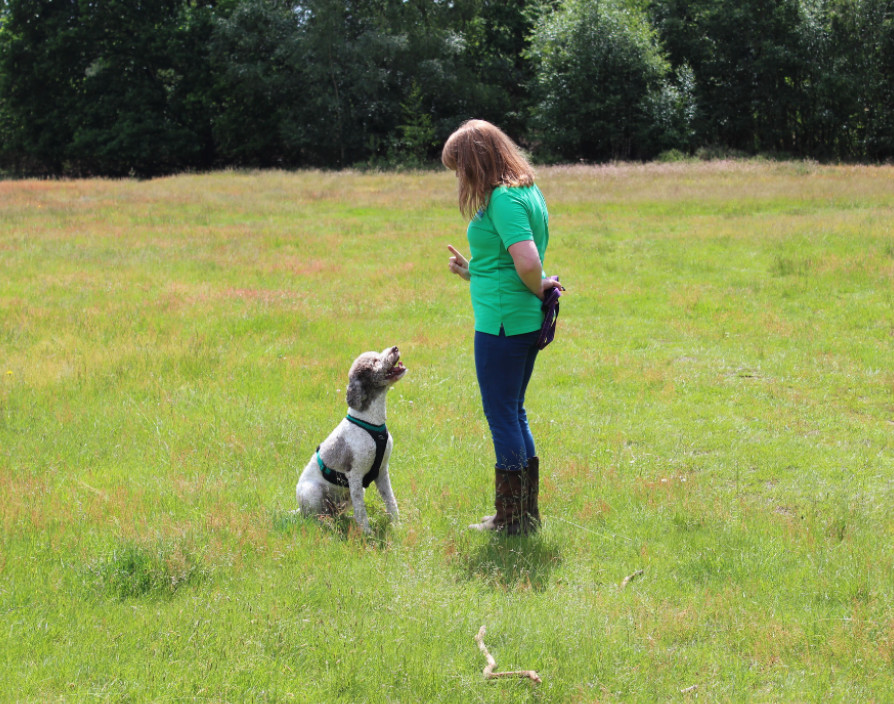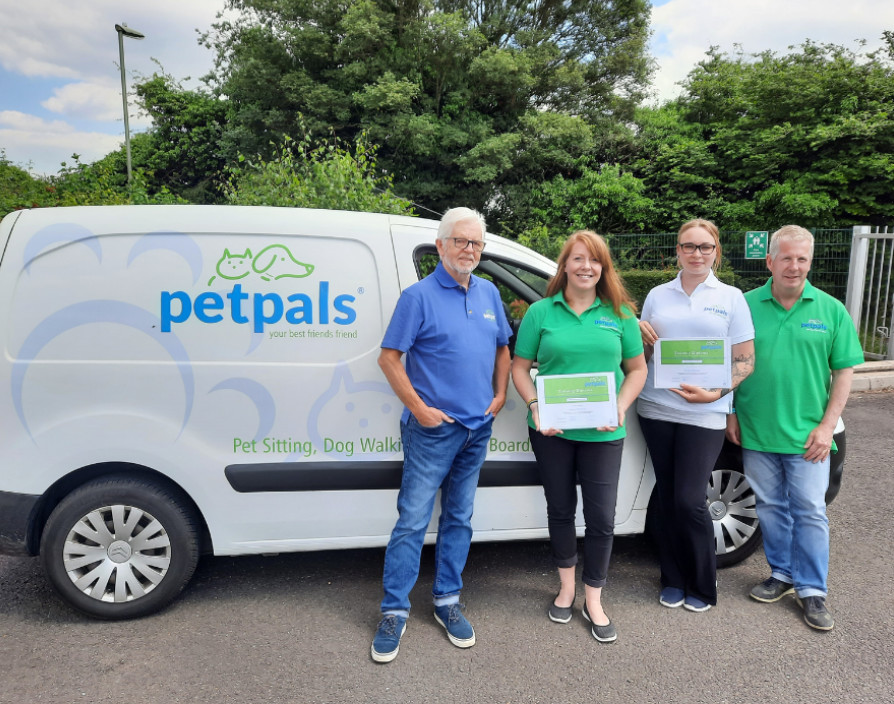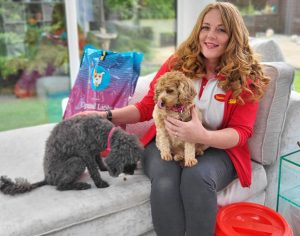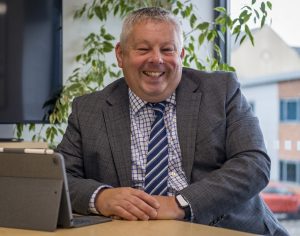A robust set of core values, coupled with nimble footedness, has ensured continued success for pet services provider Petpals. Managing director of Petpals (UK) Ltd, Kevin Thackrah, tells Elite Franchise how the company has done it.
The absence of a university education – by his own admission he was more interested in Bob Dylan and The Beatles than education – isn’t something Kevin Thackrah would necessarily recommend to today’s youth looking to gain an edge in a competitive jobs market.
But after a chequered post-secondary employment journey, initially taking in a small firm of chartered accountants as an articled clerk – where he acquired basic accounting skills – it was only later, following a move into retailing by joining Debenhams, that he completed his qualifications.
It also made him realise that being an accountant in business was much more satisfying than simply number crunching for someone else. “Why keep score for someone else when you can actually play the game?” as he puts it.
After subsequent stops, including Sainsbury’s and McDonald’s, he eventually ended up as finance director for Lasky’s – the Hi-Fi chain of the Granada Group, before it was acquired by Comet.
However, it was after he went into IT at PC reseller and systems integrator, Businessland, another ex-Granada Group company – which became part of a US organisation – that his career took off.
“When the US parent company experienced some difficulties, we got the opportunity to complete our management buyout, reselling it later to another US company,” he explains. “I stayed on as joint MD for a further 4 years, growing the business to become the third largest reseller in the UK with a turnover of £200m,” he adds.
Kevin retired but was tempted when he met an old friend on holiday who had a pet-care business for sale. “The business that was to eventually become Petpals has been trading since the mid-1990s. However, it was incorporated as Petpals UK in 2001 by a former colleague. I acquired the business and became director in 2005, completing a relaunch this year with new branding and renewed commitments to our updated code of values and mission statements,” Kevin explains.
Re-branding or otherwise, the key takeaway for Petpals is the flexibility of the services it offers. Take the case of dog walking, for example. As Kevin puts it: “Social interaction is so important for dogs and our walks are ideal to maintain their wellbeing when life interrupts your daily routine.
“Our service is available on a regular or ad hoc basis. You can choose from either one-to-one or group walks, depending on the needs of your dog.”
Also on offer is a cat and small pet sitting service where pets are visited once or even twice a day. Or, the company’s insured and licensed pet carers can even stay overnight at the house. As Kevin notes, this particular option is an advantage for those taking extended breaks as many home insurance policies don’t cover homes empty for in excess of 28 days.
Other services available include pet home boarding where the pet can stay with an approved, licensed/insured family, as well as pet taxi and domestic pet transportation.
Hence, whether it’s a trip to the groomers or organising a pet’s relocation when the client moves home, Petpals can provide the necessary in-house expertise and connections to ensure the trip is as stress-free as possible for both client and pet.
Unsurprisingly, given earlier lockdowns, Petpals has been impacted by the COVID-19 pandemic, though COVID has also proven to be a double-edged sword.
As Kevin points out: “With the introduction of the first lockdown and the fear that we were not allowed to work, our business levels dropped by almost 90%,” adding, “But although people were no longer allowed to holiday and should work from home, the main segment of our business to be affected was home boarding with many of our clients retaining us for other services, albeit on a reduced basis throughout.
“Business levels steadily increased from April onwards and we are now back to pre-COVID trading levels.”
Moreover, Kevin is particularly proud of the fact the company didn’t lose a single franchise as a result of the pandemic.
Meanwhile, the proportion of UK households owning a pet has surged to an unprecedented 59% (source Statista Research Department) having previously remained relatively stable at 45-47%, as more people took in pets, given they were spending more time working from home.
And as Kevin is also quick to point out: “With life now returning to what has become the ‘new normal’ and an estimated increase in new pet owners of over 3 million, demand for our services has never been stronger.”
In the meantime, the company underwent a re-branding exercise in June 2021, as well as shifting its franchise investment strategy.
As Kevin explains: “Essentially, we’ve repositioned our entire model, moving away from a solely owner-operator/lifestyle opportunity to a management-style model.
“Previously, our franchisees have delivered our range of services themselves – in some cases supported by staff. But we’ve also seen some franchisees grow much bigger than that, drawing on our expertise to develop a management-style operation.

“It became apparent that there’s real value in offering Petpals with both the option to launch as an owner-operator model or as a management model.”
He adds: “As part of the rebrand and launch of the management model, we’ve also revisited our core values, mission, vision and training and support package.
“For an initial fee of £18,000, franchisees are equipped with an exclusive territory, comprehensive training for both the franchisee and their team, and guidance through the increasing legislative requirements of the sector,” Kevin notes, adding “In the run up to the launch of their business, franchisees are also supported with marketing, PR, business coaching and profile-raising activity, as well as having ongoing access to further business development, coaching and support.”
And with no debilitating property costs or investment in stock, this presents an outstanding opportunity for both income and capital growth with an excellent ROI, according to Kevin.
For this £18000 investment, Petpals covers first year business insurance costs to ‘help smooth the start up and launch of the new business.’ Ongoing business insurance costs are in the region of £300 pa.
Petpals has also negotiated a discounted subscription rate of £14.99 per month from year 2 onwards to QuickBooks online accounting, which will be completely supported by Petpals own in-house QuickBooks accredited trainer.
Armed with those numbers, the process of becoming a franchisee in terms of meetings, legal fees and so on is also fairly straight forward.
According to Kevin, “It starts with an initial discussion with our Franchise Support Manager and, if appropriate, a Discovery Day with one of our franchisees.
“From there, we follow up with a formal interview with me and other members of the team.
“If all parties are happy to proceed, we then confirm the territory details and secure it with a deposit.”
The next stage is to arrange for an operations planning day to work through the research and business plan necessary to launch the business. “Following that,” adds Kevin, “We move on to planning the actual training and launch programmes. We also provide the franchisee with a draft of the Franchise Agreement and strongly recommend they have it reviewed by a franchise lawyer.”
On-site launch support is provided by the appropriate regional business development manager and a comprehensive marketing programme kicks off for the first year of trading.
A major point for any would-be franchisee to consider however is whether they actually want to go into business with the opportunity to generate both income and long-term value for the business or are looking for what is effectively a self-employed job.
“This is a significant investment in both time and money,” Kevin points out noting, “So they must take the necessary time to fully understand both franchising and their preferred choice of franchise. Research as always is key. Questions, questions, questions. It’s in no-one’s interest to make the wrong decision. The franchisor should also be committed to the franchisee’s long-term success and not just the initial fee and a dot on the map.”
In short – and unlike many other pet-care companies – Petpals isn’t just offering a lifestyle business to fit around your family it is also a “first-class business investment opportunity in a rapidly growing market, which will ultimately provide the rewards for you to enjoy family life,” as Kevin puts it.
“We are also fully committed to the provision of a fully sustainable ethical business providing pet care at the highest possible standards.
“It’s imperative that our franchisees put the welfare of pets at the centre of any business decisions they make. That is the only way we will achieve our vision of becoming the UK’s leading provider of ethical pet-care services by ensuring that all pets have access to care at the highest welfare standards.
He adds: “Setting this standard and key culture of our business means that our franchisees can lead a team of likeminded pet carers who will embody our core values. Leadership isn’t just about creating loyal followers, it’s about empowering people to be leaders themselves.”
With an existing network of 50-plus franchisees, comprising both single and multi-territory owners there is clearly scope for growth, going forward.
As Kevin notes: “With an ever-increasing market and demand for our services, we expect to double our network size over the next five years. As the animal welfare legislation and licensing requirements increase, there will be a greater need for fully compliant professional businesses like Petpals.”
He adds: “I would expect average franchisee revenues to be well approaching £100,000 pa with the majority in excess of that.”
Putting this in context pre-COVID average revenues were in excess of £60,000; and this was with the majority of businesses working an owner-operator model, according to Kevin. “Those working with a team were already well in excess of this and most franchisees are already back to pre-COVID levels,” he says.
Kevin adds that territory size alone hasn’t made a significant difference to turnover levels however; indeed in many cases smaller territories tend to be better as it leads to greater concentration and visibility in the area.
“The main difference has been down to how the franchisee chooses to operate and how active they are in promoting their business locally,” says Kevin.
Key to this are the company’s core values and the belief that “pet ownership is a privilege not a right” meaning the welfare of pets in its care is its number one consideration.
Also, only excellence is acceptable in the care of clients’ pets and their homes, while honesty and integrity are vital in everything the company does and says.
Meanwhile, the confidentiality and value of every client must be recognised and respected at all times.
“We do not believe in luck, but believe that the outcome of everything we do is directly related to the quality and amount of effort we put in. Teamwork will achieve greater results than individual effort,” says Kevin, adding, “Our mission is to positively enhance the lives of our clients and their pets by the delivery of exceptional pet care through our dedicated, trained and professional teams and ensuring that we become their ‘best friend’s friend’. We allow our clients to relax in the knowledge that both their much-loved pet and their homes are in safe hands.”
Hence, all franchisees must be committed to both the company’s mission and its core values.
Against the backdrop of increased pet ownership and the expectation of more people working from home than before – even after offices open up again – it’s a formula that should guarantee ongoing success.



































